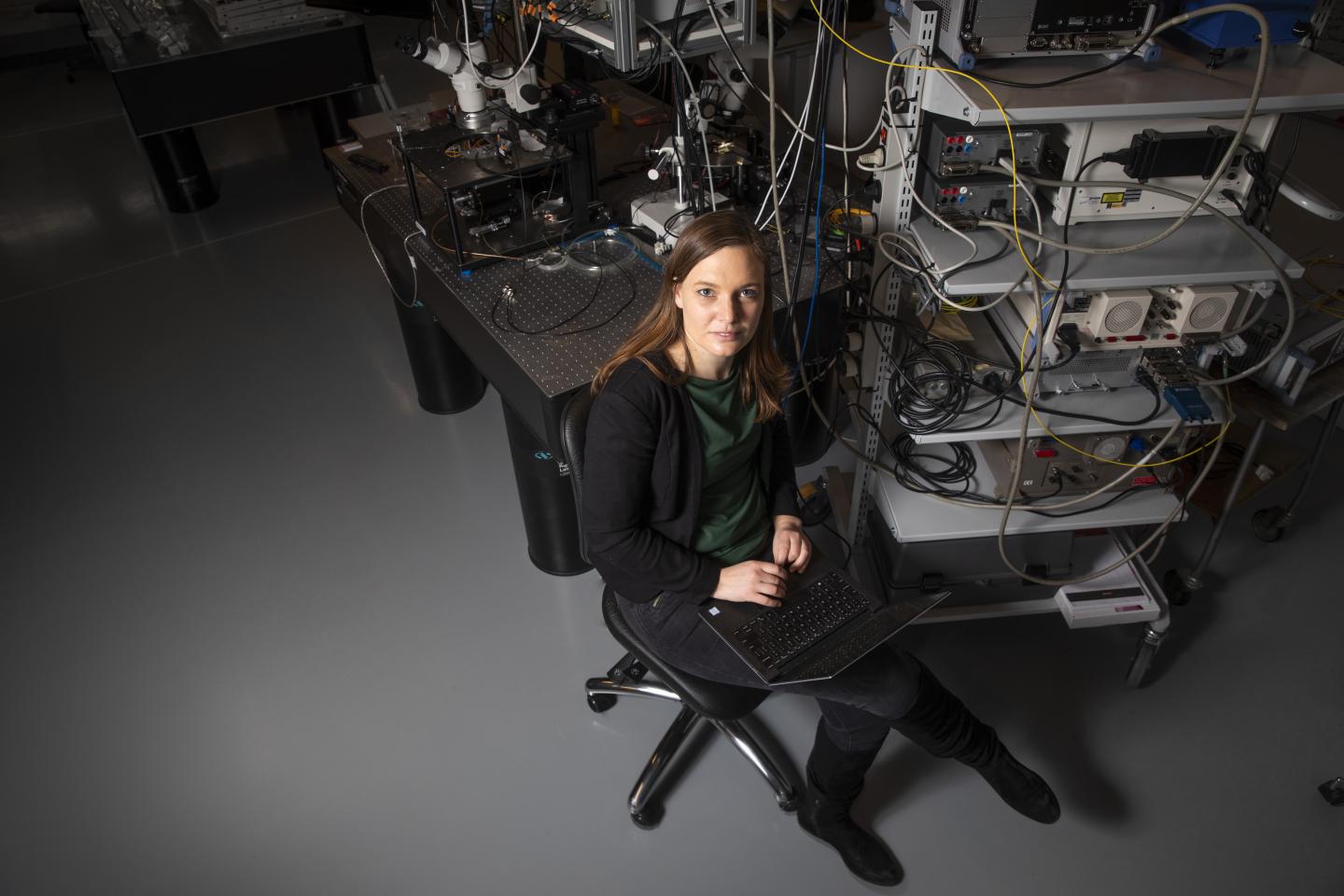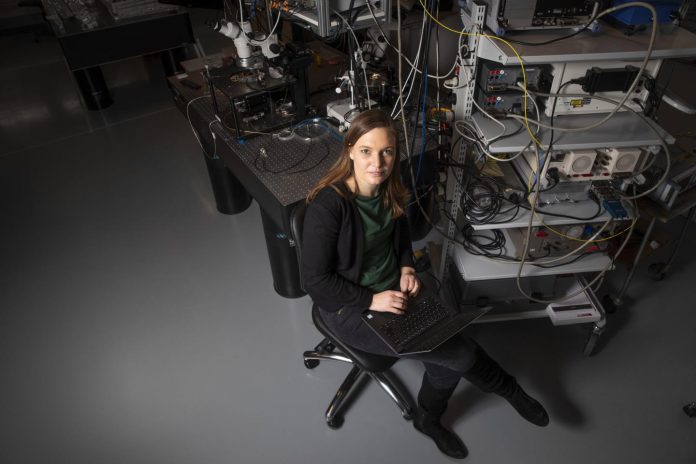
Photo: A new R&D project at Aarhus University aims to develop a camera-based AI-controlled separation system that can accurately separate plastic waste according to type. The goal is recycled plastic with…
view more
Credit Image: Lars Kruse, AU Foto.
A new research project is aiming to develop a camera-based separation system that can separate plastic waste according to type. The machine will be implemented at plastic recyclers, enabling the manufacturing industry to significantly increase the use of recycled plastics.
With a DKK 22.7 million (EUR 3 million) grant from Innovation Fund Denmark, Aarhus University has teamed up with waste management and recycling companies Vestforbrænding I/S, Dansk Affaldsminimering ApS and PLASTIX A/S in a project to develop a new technology that has the potential to significantly increase the purity of recycled plastic materials.
In contrast to common belief, plastic is not just one material, but rather a plethora of chemical compounds and filler materials, depending on its use. Plastic is therefore quite difficult to recycle at large scale, because the materials cannot simply be ‘boiled’ into one big, uniform and reusable material.
“Plastic is not just plastic. There are all sorts of different types of polymers, and they are virtually impossible to mix. For this reason, we want to develop equipment that can separate different plastics according to their specific properties by using three different types of cameras. This will make it possible to categorise plastic waste according to its exact properties, and then divide it into fractions that are actually usable,” says Associate Professor Mogens Hinge from the Department of Engineering at Aarhus University, who is heading the project.
It is important for several reasons that plastic waste can be sorted by type, says Head of Recycling and Reuse at Vestforbrænding I/S, Yvonne Amskov:
“With this new technology, we can increase the quality of citizens’ plastic waste and help send it back into the production cycle. Secondly, traceability is important to us, since it makes the entire process transparent and enables us to showcase what actually happens to citizens’ waste and how – specifically – it is recycled,” she says.
The separation will be controlled by artificial intelligence, and it will contain three different types of camera; a CMOS camera, a hyperspectral camera and a terahertz camera, that together can photograph the properties of the plastic material directly on a conveyor-belt system.
A CMOS camera is an ordinary digital camera like those in smartphones. The hyperspectral camera can register far more wavelengths than the human eye, and can therefore read the unique spectral signatures of different plastic types and a terahertz camera can register the refractive index of materials.
“Terahertz provides a detailed image of the specific properties of a given plastic material. Using terahertz technology, we can characterise material properties very accurately,” says Assistant Professor Pernille Klarskov Pedersen, an expert in terahertz technology from the Department of Engineering, Aarhus University.
The project is known as Re-Plast, and it will provide solutions to the major, global challenge of managing and recycling plastic waste using very accurate plastics separation, product documentation and materials traceability. The goal is recycled plastic with a plastic purity of at least 96 per cent by polymer type and sorted according to unwanted colours, filler materials, etc.
“By coupling the spectroscopic signals obtained with the chemical composition of the plastic, we can achieve pure, well-documented plastic fractions, which can then be recycled in the Danish plastics industry. The Re-Plast project aims to develop this technology, make it work, and then implement it in the industry. We want to take the technology all the way and show that it really does work at plastic recyclers. This will really boost the Danish circular economy,” says Mogens Hinge.
###
TDnews (tunisiesoir.com)















